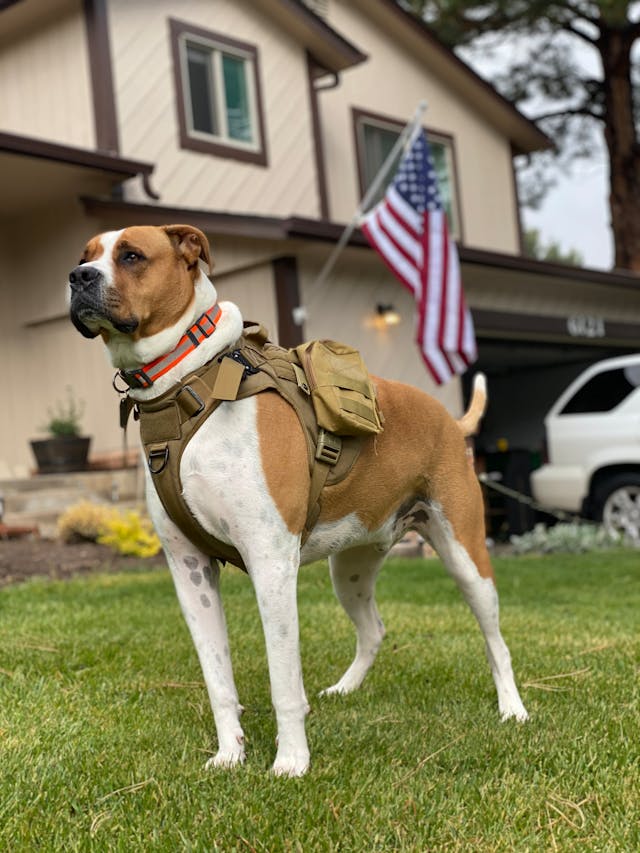
While dogs offer companionship and help with stress relief, the reality is that not every dog is suited to become a service dog. Service dogs require specific traits, temperaments, and training to effectively assist individuals with disabilities.
Here are some key factors to consider when assessing whether a dog would make a good service dog:
Temperament
One of the most critical factors in determining a dog’s suitability as a service dog is its temperament. Service dogs need to remain calm, focused, and well-behaved in various environments and situations. They must be able to handle distractions, loud noises, and crowded spaces without becoming anxious or aggressive. Dogs with a naturally calm, friendly, and patient disposition are typically better suited for service work.
Trainability
Service dogs undergo extensive training to learn specific tasks that will assist their handlers. Therefore, a good service dog candidate should display a high level of trainability and intelligence.
Dogs that quickly pick up new commands, eagerly respond to training cues, and exhibit a strong desire to please their handlers are ideal candidates for service work. Breeds known for their intelligence, such as Labrador Retrievers, Golden Retrievers, and German Shepherds, are often favored for service dog roles.
Read more: Tips On Training Your Own Service Dog
Physical Health
Service dogs need to be in excellent physical health to perform their duties effectively. Dogs with chronic health issues or physical limitations may struggle to meet the demands of service work.
A thorough health assessment by a veterinarian is essential to ensure that the dog is free from any medical conditions that could interfere with its ability to work as a service dog. Additionally, breeds prone to certain health problems, such as hip dysplasia or breathing difficulties, may not be suitable for service roles.
Socialization
Service dogs interact with a wide range of people and other animals in various environments. Therefore, it’s important for them to be well-socialized from a young age.
A good service dog candidate should be comfortable and confident when meeting new people, children, and other animals. Early socialization helps to instill positive behaviors and reduces the likelihood of fear or aggression towards unfamiliar stimuli.
Focus and Attention
Service dogs need to maintain a high level of focus and attention on their handlers at all times. They must be able to ignore distractions and remain attentive to their tasks, even in busy or stimulating environments.
Dogs that naturally exhibit strong focus and attentiveness are better equipped to handle the demands of service work. Additionally, a strong bond between the dog and its handler can further enhance the dog’s focus and dedication to its duties.
Adaptability
Service dogs often encounter unpredictable situations and environments while accompanying their handlers. Therefore, adaptability is a crucial trait for a successful service dog.
Dogs that can quickly adapt to changes in routine, environment, or task requirements are better equipped to handle the challenges of service work. A willingness to learn new tasks and adjust to different situations is essential for a service dog to be effective in its role.
Read more: Training Your Dog to Behave at Pet-Friendly Restaurants: 6 Tips That Work
Final Thoughts
Selecting a suitable service dog candidate requires considering various factors, including temperament, trainability, physical health, socialization, focus, attention, and adaptability.
While not every dog may possess the qualities necessary to become a service dog, those that do can make a profound difference in the lives of individuals with disabilities, providing them with invaluable support and assistance.
Do you own an assistance animal? Register your pet today.
The Service Animal Registry of California invites you to have your assistance animal registered in order to designate its status. We also encourage you to take our online classes so you can be fully aware of your rights and gain more knowledge about your support animal.
Finally, we present to you our book entitled, “ASSISTANCE ANIMAL LAWS: LEARN YOUR RIGHTS REGARDING SERVICE ANIMALS, EMOTIONAL SUPPORT ANIMALS, THERAPY PETS, AND OTHER DOGS, CATS, AND ASSISTANCE ANIMALS” to provide you with a complete education on assistance animals.
Purchase your copy of the book by clicking the image below.

